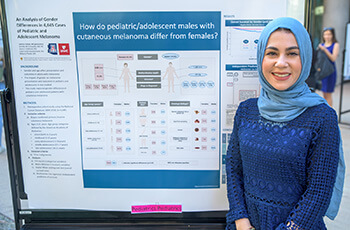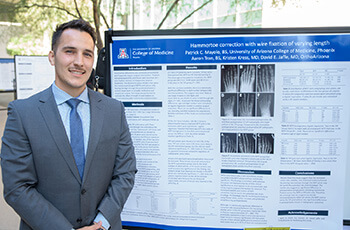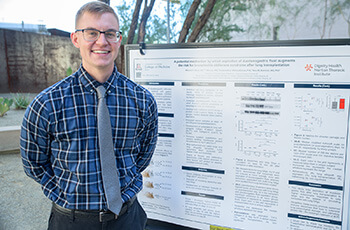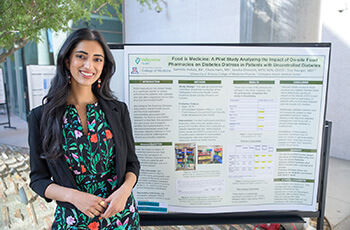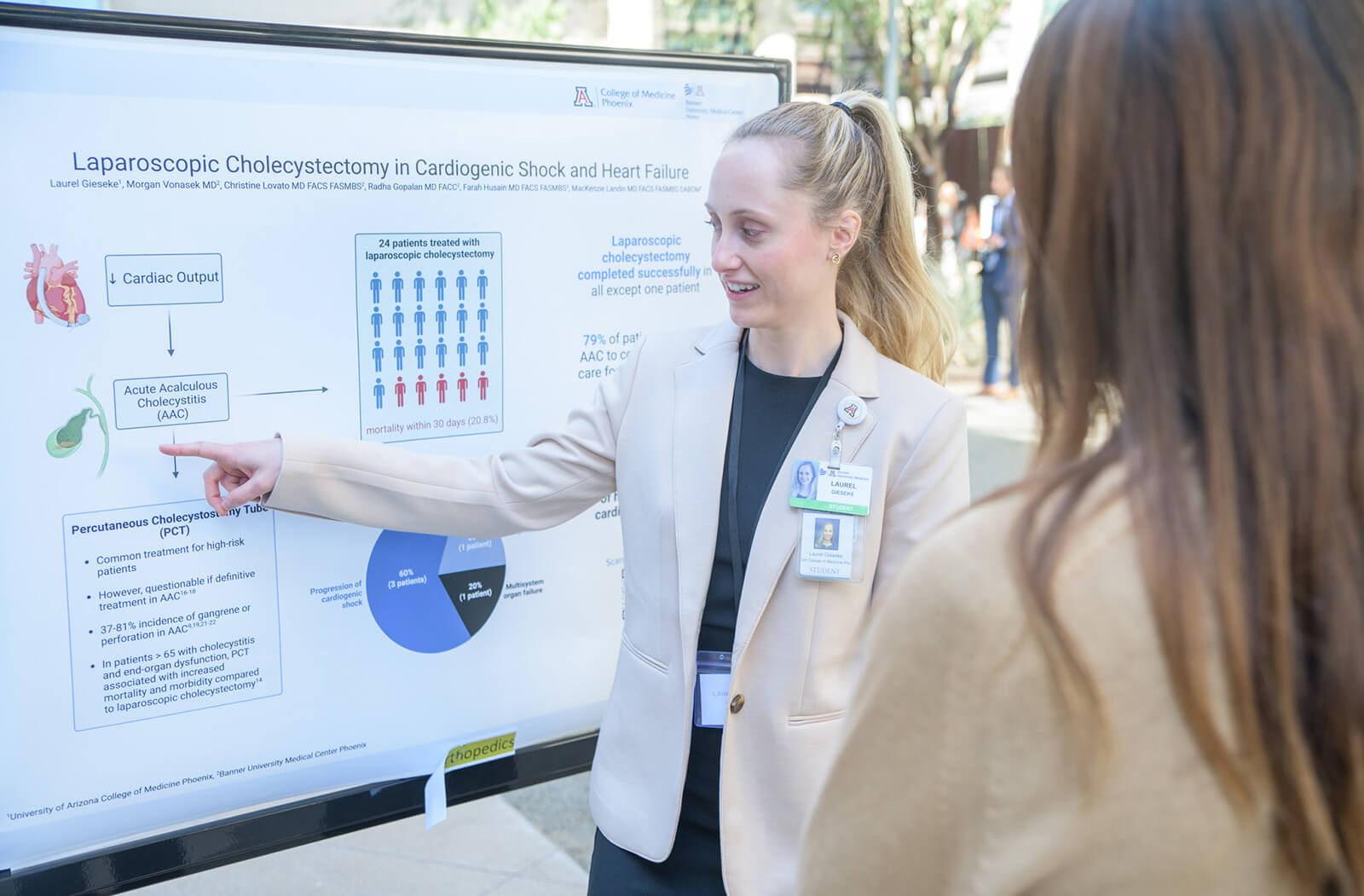
Annual Symposium Showcases the Four-Year Research Projects of Graduating Medical Students

Medical students at the University of Arizona College of Medicine – Phoenix are required to complete a publishable, hypothesis-driven, data-supported Scholarly Project. Over the course of their four years of study, the students will work with a mentor to craft their research project.
As one of only a handful of medical schools to require such a project, it serves as a true differentiator for the college’s students when they interview for residency programs.
For Joseph Stephan Stapczynski, MD, director of Scholarly Projects, its overall impact on their medical education cannot be understated. “Students learn about medical information literacy, life-long learning, teamwork, effective communication, research methods, evidence-based medicine approaches and ethics related to scholarly inquiry,” he said. “Physicians of the future will be expected to keep up-to-date with advancing biomedical knowledge, so involvement in research via the Scholarly Project is a crucial step in the student’s ability to understand research publications and incorporate that information into their practices.”
Every year, the medical students present this research at the Annual Scholarly Project Research Symposium; and this year, several future physicians shared what they learned from the research process; what the outcome of their project was; how they felt it will make them better physicians; and offered advice to incoming medical students on what to expect.
- View all of the poster presentations.
- Photos from the event.
Scholarly Projects
About the College
Founded in 2007, the University of Arizona College of Medicine – Phoenix inspires and trains exemplary physicians, scientists and leaders to advance its core missions in education, research, clinical care and service to communities across Arizona. The college’s strength lies in our collaborations and partnerships with clinical affiliates, community organizations and industry sponsors. With our primary affiliate, Banner Health, we are recognized as the premier academic medical center in Phoenix. As an anchor institution of the Phoenix Bioscience Core, the college is home to signature research programs in neurosciences, cardiopulmonary diseases, immunology, informatics and metabolism. These focus areas uniquely position us to drive biomedical research and bolster economic development in the region.
As an urban institution with strong roots in rural and tribal health, the college has graduated more than 1,000 physicians and matriculates 130 students each year. Greater than 60% of matriculating students are from Arizona and many continue training at our GME sponsored residency programs, ultimately pursuing local academic and community-based opportunities. While our traditional four-year program continues to thrive, we will launch our recently approved accelerated three-year medical student curriculum with exclusive focus on primary care. This program is designed to further enhance workforce retention needs across Arizona.
The college has embarked on our strategic plan for 2025 to 2030. Learn more.
